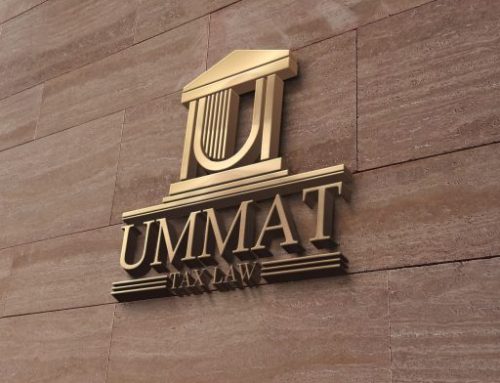Appellant Fails to Prove Timing of Revenues for Canada/US Treaty Purposes
Wolf v. Canada 2019 FCA 283
Background
This decision raises an interesting treaty-related issue. The Appellant is an aerospace engineer. He was a US resident in 2012 but worked in Canada for over 183 days in that year. In 2012, the Appellant was involved in work arrangements with various entities. He carried on business as an independent contractor to TDM Technical Services (“TDM”), whereby TDM arranged for the Appellant to provide consulting services to Bombardier in Canada. Additionally, the Appellant was engaged by a US aerospace manufacture and design company Davis Aircraft Products (“DAP”). As part of the DAP arrangement, the Appellant became a member of a US LLC named Wolfbend LLC (“Wolfbend”), which was treated as a partnership for US tax purposes. The Appellant was one of five members of Wolfbend, and he held a 35% stake therein.
Canada/US Treaty
Paragraph 1 of Article VII of the Treaty states that business profits of a resident of the US may be taxable in Canada if the business profits are attributable to a permanent establishment through which the business is carried on in Canada. The relevant part of Paragraph 9 of Article V is as follows:
- Subject to paragraph 3, where an enterprise of a Contracting State provides services in the other Contracting State, if that enterprise is found not to have a permanent establishment in that other State by virtue of the preceding paragraphs of this Article, that enterprise shall be deemed to provide those services through a permanent establishment in that other State if and only if:
(a) Those services are performed in that other State by an individual who is present in that other State for a period or periods aggregating 183 days or more in any twelve-month period, and, during that period or periods, more than 50 percent of the gross active business revenues of the enterprise consists of income derived from the services performed in that other State by that individual; or…[1]
Subparagraph 9(a) applies if a) services are performed for 183 days or more and b) more than 50% of the revenues of the enterprise are derived from services performed in the other State. As mentioned above, the Appellant was in Canada more than 183 days in 2012. The remaining issue was the nature of the enterprise and its gross revenues.
Tax Court Decision
The Tax Court found that both the TDM work and the DAP income earned through Wolfbend were part of the Appellant’s enterprise. Looking back at subparagraph 9(a), it became clear that the Appellant satisfied both the 183-day condition and the enterprise condition. The only remaining issue was whether the Appellant’s enterprise (which included both Canadian and US income sources) earned more than 50% of its income in Canada. If it did, then it would be considered a permanent establishment. If it did not, then the contrary would be the case. His earnings through TDM were $26,244 and his earnings via Wolfbend was $233,197 of business income and $46,143 of royalties.
The Tax Court Hearing turned on the Appellant’s inability to establish when he earned the US income:
However, with respect to the determination of the gross revenues of the U.S. portion of Lawrence Wolf’s enterprise, the Tax Court Judge found that Lawrence Wolf did not provide any evidence to indicate when those revenues were generated. Therefore, he was unable to determine what percentage of the gross active business revenues of the enterprise consisted of income derived from the services performed in Canada, during the period or periods of time when Lawrence Wolf was present in Canada. The Tax Court Judge concluded that, since Lawrence Wolf failed to prove that the percentage of his revenues from the Canadian source was not more than 50% of the total gross active business revenues of his enterprise during the period or periods while he was present in Canada, his appeal failed.[2]
On its face, it would seem to have been relatively simple to establish the respective amounts of income earned in each jurisdiction during the period in issue.
Decision & Analysis
At the FCA, the Crown argued that the Tax Court should have considered the income earned by Wolfbend to be Wolfbend’s enterprise (which would then remove it from the subparagraph 9(a) analysis). The Appellant alleged the Tax Court Judge erred in determining that he did not establish that 50% or less of the active gross business income from his enterprise was earned in Canada.
Webb J., writing for the Court, dismissed the appeal with costs on the basis that the Appellant could not show that the Tax Court had erred. Webb J. seemed perplexed that the Appellant did not adduce any evidence to show when he earned the US revenue and when he earned the Canadian revenue.
Lawrence Wolf would know what period or periods he was present in Canada and, although the records were kept by Davis Aircraft, there is nothing to indicate why Lawrence Wolf could not have obtained the financial information from Davis Aircraft with respect to the timing of the earning of the revenue in the United States. Lawrence Wolf did not point to anything in the record that would support any finding of when the revenue was earned in the United States.[3]
As in many tax cases, the only real issue here is lack of evidence. Since the majority of the income earned by the Appellant’s enterprise was in the US, it would seem simple for the Appellant to establish the timing and source of revenues. For reasons which are unclear, this simply was not the case. The Appellant did not adduce any evidence with respect to the actual timing of the earning of the revenue in the United States. This proved fatal to his case. Call Ummat Tax Law for treaty-related advice.
[1] Convention Between Canada and the United States of America with Respect to Taxes on Income and on Capital (1980)
[2] Wolf v. Canada 2019 FCA 283 (“Wolf”) at para. 11.
[3] Wolf, at para. 27.




